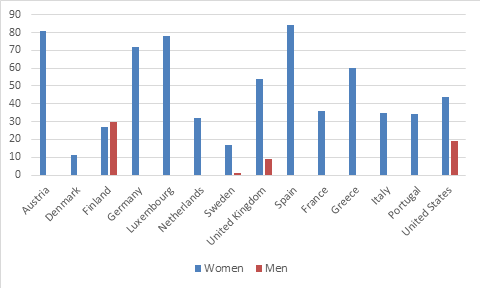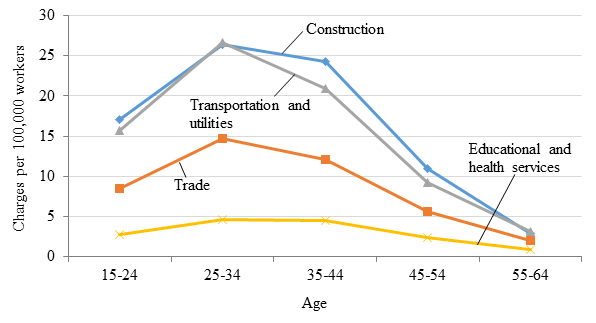SEXUAL HARASSMENT DAMAGES BUSINESS AND EMPLOYEES
NEW REPORT FINDS SEXUAL HARASSMENT IS DETRIMENTAL TO BUSINESS AS WELL AS WORKERS
New report by US economist Joni Hersch, publishing on 1st October on IZA World of Labor, finds that sexual harassment is far more prolific and economically damaging than previously thought: On average 30 to 50% of women have experienced sexual harassment, with rates varying wildly by country, from 11% in Denmark to 81% in Austria.
Research shows:
- 90% of US government workers who have been sexually harassed took no action
- For the US, estimated costs of sexual harassment over two years reached $327 million
- There is an individual cost of $22,500 per person affected by sexual harassment
- Sexual harassment charges by women in the US peak at ages 25–44
- 75 countries have legislation prohibiting sexual harassment in the workplace
- Men also experience sexual harassment, on average about 10% in the countries measured
- Construction, transportation, and utilities industries have the highest rates of harassment
- A business’ organizational structure and culture play a major role
Fig 1: Workplace sexual harassment rates by country and sex (percent reporting having been sexually harassed)
The economic costs of sexual harassment are severe; Lower job satisfaction and higher rates of quitting increases recruitment and training costs, higher absenteeism decreases productivity, worse psychological and physical health are incredibly negative for a company’s morale and efficiency. For the US, estimated costs of sexual harassment over a period of two years accounted for about $327 million. A second source estimated an individual cost of $22,500 per person affected by sexual harassment; both numbers are primarily driven by reduced productivity.
Fig 2: Sexual harassment charges by women in the US vary by industry and peak at ages 25–44
Policy advice from the author:
Emphasizing prevention, issuing strong policy statements of no tolerance, and providing a safe mechanism for complaints of sexual harassment can be considered best practices. Training for appropriate behavior would help workers become more aware of what constitutes sexual harassment and may be motivated to avoid such behavior, thus contributing to changing the culture of the business.
Not all nations have legally acknowledged sexual harassment, notably in the Middle East and Japan where there are no laws making it an illegal practice. Information about not only the social, but also the economic, impact of sexual harassment could lead the way for policies to reduce harassment at work.
Author quote:
“Sexual harassment is costly to workers and organizations, and more than 75 countries have legislation prohibiting sexual harassment in the workplace. But it remains pervasive and underreported. To date, laws and market incentives have been insufficient to eradicate workplace sexual harassment. Success may require policies to enhance market and legal incentives by raising the costs to organizations of tolerating an adverse work environment, promulgating strong policies against sexual harassment, and establishing a complaints process that protects workers from retaliation.”
The Author:
Joni Hersch is an economist who works in the areas of employment discrimination and empirical law and economics. She is Professor of Law and Economics and Co-Director, Ph.D. Program in Law and Economics at Vanderbilt University, USA, and an IZA fellow.
Media contact:
Please contact Sarah Williams at Bloomsbury for more information, for author comments and interviews, or if you are interested in an exclusive look at the article before publication: Sarah.Williams@Bloomsbury.com, +44(0)2076315508
Notes for editors:
- IZA World of Labor (http://wol.iza.org) is a global, freely available online resource that provides policy makers, academics, journalists, and researchers, with clear, concise and evidence-based knowledge on labor economics issues worldwide.
- The site offers relevant and succinct information on topics including diversity, migration, minimum wage, youth unemployment, employment protection, development, education, gender balance, labor mobility and flexibility among others.
- Established in 1998, the Institute for the Study of Labor (www.iza.org) is an independent economic research institute focused on the analysis of global labor markets. Based in Bonn, it operates an international network of about 1,300 economists and researchers spanning more than 45 countries.


